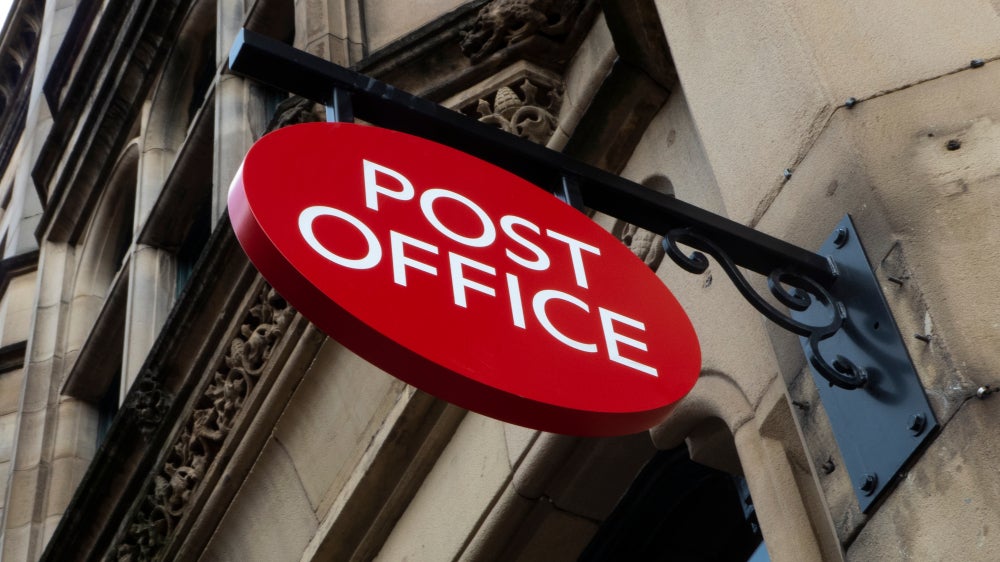
Called “one of the greatest miscarriages of justice this country has seen” by Prime Minister Rishi Sunak, the Horizon scandal saw 983 sub-postmasters convicted between 2000 and 2015. At the heart of the scandal was the issue of governance and fair management – or the lack thereof.
How did the Post Office fail?
The Post Office introduced new software, Horizon, made by Japanese company Fujitsu, from 1999. The software was rolled out across the UK and heralded as a move to digital management of transactions, accounts and stock in around 18,000 branches.
Within weeks, sub-postmasters complained of issues with the system, reporting inexplicable accounting shortfalls. However, it took another two decades before the faults in the system were officially acknowledged.
David Bicknell, principal analyst at GlobalData, explains how a lack of accountability amongst governing bodies allowed the faulty software to develop into a national scandal: “The system was flawed, but no one was prepared to admit it. The system was rolled out to Post Office branches in 2000. It took a landmark 2019 Court of Appeal case before the Post Office’s leadership finally conceded that there were systemic issues with the Horizon system.”
The Post Office used its private investigation and prosecution powers to pursue sub-postmasters in the courts. This was despite an expert IT witness revealing problems with the Horizon software at sub-postmistress Julie Wolstenholme’s case as early as 2003.
Tony Collins, co-founder of Campaign4Change explains how the Post Office was able to hide Horizon’s failings for almost two decades: “When shortfalls began to appear on Horizon, there was no need to investigate them thoroughly because the Post Office had an assured way of covering losses that appeared on the system: the institution had one-sided contracts between the Post Office and branch sub-postmasters and sub-postmistresses.

US Tariffs are shifting - will you react or anticipate?
Don’t let policy changes catch you off guard. Stay proactive with real-time data and expert analysis.
By GlobalData“The Post Office interpreted these contracts as requiring that sub-postmasters pay losses shown on the system, however big. The Post Office did not need to prove any actual money had gone missing. Sometimes it claimed phantom losses of more than £100,000 (£128,000).”
How did the Post Office fail in its governance?
A 2021 survey of ESG executives by GlobalData found that 55% deemed governance to be the least important pillar of ESG.
Yet, the sustained lack of good governance by the Post Office resulted in the subsequent wrongful allegations of theft, fraud and false accounting that sent sub-postmasters to prison, bankrupted many and was linked to at least four suicides.
Caroline Carruthers, former chief data officer for Network Rail, spoke to Verdict about the consequences of trusting data over human conclusions: “The issue goes beyond the accuracy of a computer or the data, it’s all down to the communication between people and machines. In this instance, blind trust was placed in the data instead of proactively looking into the underlying problems.”
Although it was Horizon’s faulty data that saw sub-postmasters convicted, poor management of the software’s introduction to the Post Office was also a key factor. Board meeting minutes reveal that the corporation discussed that Horizon’s “accounting integrity” was “as yet uncertain” as early as 11 January 2000.
However, the failings extend beyond the Post Office. As a public corporation of the UK government, the Post Office would have struggled to reject the system, which had strong political support. The recent inquiry has revealed that Fujistu executives urged the government, under Tony Blair, to agree to the Horizon deal so as to help avoid job losses and reductions in trade at ICL – the then-struggling UK company wholly owned by Fujitsu.
Considering the government’s role in the scandal, Bicknell comments: “The Post Office scandal is based on problems with the Horizon system. But all too often in government, no one wants to admit publicly that a commissioned system may be faulty, and government certainly lacks courage when it comes to terminating a failing IT project. The computer system was clearly at fault here.”
Who is to blame?
“The Horizon system failed, and yet individuals were still being taken to court and wrongly accused of theft and false accounting. That is a massive failure of governance across the board – by the Post Office, arguably by Fujitsu too and certainly by government,” says Bicknell.
“A succession of government ministers for the Post Office all failed to act, despite concerns over the system’s problems. Despite mounting evidence of problems, numerous governments simply failed to act.”
Sir Ed Davey, leader of the Liberal Democrat party, has come under particular scrutiny for his failure to act during his time as postal affairs minister between 2010 to 2012. He declined to meet campaigner and ex-sub-postmaster Alan Bates in May 2010, saying it would not “serve any purpose”.
Jo Swinson has also been criticized. As the postal affairs minister from 2012 to 2015, she was in role when Second Sight published its interim report on the Horizon system in 2013. The report found that defects had resulted in some shortfalls, but the Post Office stated that there was “absolutely no evidence of any systemic issues with the computer system.”
Chief executive of the Post Office from 2012 to 2019, Paula Vennells was responsible for the overall governance of the Post Office during her tenure. She collected over £4.5m in pay during this time, almost half of which was in bonuses, and was awarded a CBE in 2019, ahead of the high court judgement that found that Horizon system to have “bugs, errors and defects”.
Vennells handed back her CBE earlier this week, stating: “I have so far maintained my silence as I considered it inappropriate to comment publicly while the inquiry remains ongoing and before I have provided my oral evidence … I am truly sorry for the devastation caused to the sub-postmasters and their families, whose lives were torn apart by being wrongly accused and wrongly prosecuted as a result of the Horizon system.”
What does the scandal mean for the future?
For sub-postmasters involved in the scandal, the end is in sight. Victims will be “swiftly exonerated and compensated,” according to Rishi Sunak, and they will be eligible for at least £600,000 in compensation.
However, the Horizon scandal is evidence of the high stakes associated with faulty technology and improper governance. GlobalData’s 2023 Tech Regulation report warned of the risks associated with rapid, unregulated innovation, stating that “the pace of innovation in areas like artificial intelligence (AI), blockchain and digital health creates unprecedented risks to society.”
The report predicts that “making regulation fit for the digital economy without hampering innovation” will be “a thorny task that regulators must grasp.”
Bicknell commented: “We might want to ask ourselves, could this situation play out again in a few years’ time over a supposedly infallible AI system whose operation no one has the courage to question? Could lightning strike twice? Yes, it probably will.”







